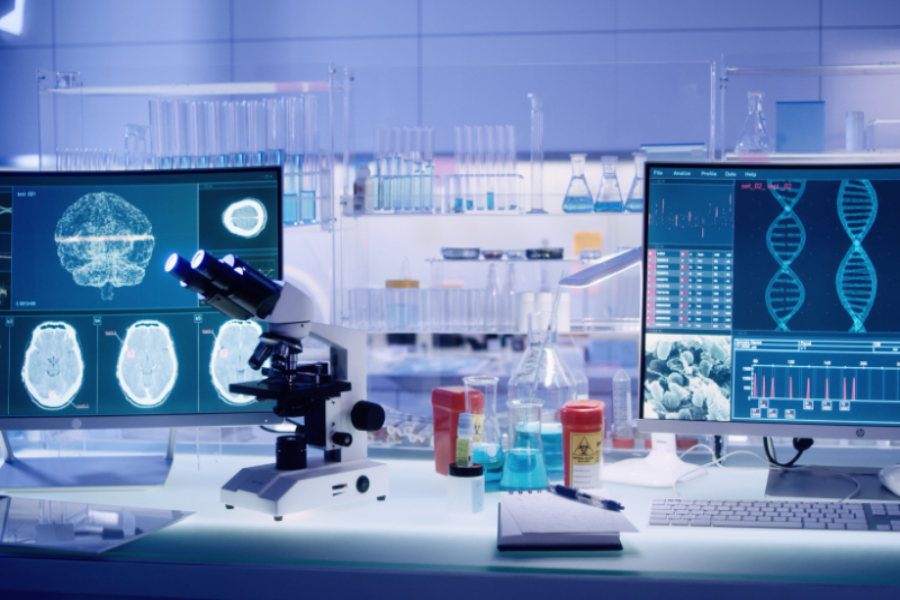Laboratory equipment plays a critical role in the success of scientific research and medical testing. While most users are familiar with the basic functionalities of these tools, several hidden features often go unnoticed. These features, when understood and utilised effectively, can significantly enhance the efficiency, precision, and safety of lab operations. In this article, we will uncover the hidden features of critical lab equipment—laboratory refrigerators, incubators, and ovens—that you may not be aware of but which can transform the way you work.
1. Advanced Temperature Control in Laboratory Refrigerators
Laboratory refrigerators are essential for storing sensitive samples, reagents, and biological materials. Their primary function is temperature regulation, but many laboratory refrigerators come with advanced temperature control features that are not always fully utilised. These include programmable temperature settings, alarms for temperature deviations, and data logging capabilities.
Programmable temperature settings allow you to set precise temperatures for different materials, ensuring optimal storage conditions. The alarm system alerts you if the temperature deviates from the set range, which can prevent the spoilage of valuable samples. Additionally, data logging enables you to monitor and record temperature changes over time, providing crucial information for regulatory compliance and quality assurance.
To maximise these features, ensure your laboratory staff is trained to program and monitor the refrigerator’s settings. Regularly review the temperature logs to identify any trends or issues that need to be addressed. By leveraging these hidden features, you can enhance the reliability and efficiency of your laboratory’s cold storage solutions.
2. Customisable Humidity Levels in Laboratory Incubators
Laboratory incubators are indispensable for growing and maintaining cell cultures, as well as for conducting various biological experiments. Beyond their fundamental function of maintaining a stable temperature, some laboratory incubators can customise humidity levels. This feature is particularly useful when working with cell cultures that require specific humidity conditions to thrive.
Customisable humidity control allows you to set the incubator to the exact moisture level needed for your experiments. It leads to more consistent and reproducible results, as the growth environment can be finely tuned to meet the needs of your cultures. Additionally, some incubators come with humidity monitoring and alarm systems that notify you of any deviations from the set levels.
To take full advantage of this feature, it’s critical to understand the humidity requirements of the materials you’re working with. By adjusting the incubator settings accordingly, you can create the ideal environment for your experiments, leading to more accurate and reliable outcomes.
3. Energy-Efficient Modes in Laboratory Ovens
Laboratory ovens are used for various purposes, including drying, sterilising, and annealing. While their basic functionality is widely known, many laboratory ovens come equipped with energy-efficient modes that can help reduce energy consumption without compromising performance. These modes may include programmable timers, eco-modes, and automatic shutoff features.
Programmable timers allow you to set specific times for the oven to operate, ensuring it only runs when needed. It saves energy and reduces wear and tear on the equipment. Eco-modes optimise the oven’s energy usage by adjusting heating cycles and maintaining temperature with minimal power consumption. Automatic shutoff features ensure that the oven turns off after a set period of inactivity, further conserving energy.
By using these energy-efficient features, you can reduce your lab’s operational costs and contribute to a more sustainable work environment. Ensure your staff knows these modes and how to implement them effectively in daily operations.
Conclusion
Understanding and utilising the hidden features of laboratory equipment can have a profound impact on the efficiency, accuracy, and safety of your lab operations. From advanced temperature control in laboratory refrigerators to customisable humidity levels in incubators and energy-efficient modes in ovens, these features offer significant benefits that can enhance your lab’s performance. By taking the time to explore and implement these features, you can optimise your laboratory processes and ensure that your equipment is used to its full potential.
For more information about laboratory equipment solutions, contact Dou Yee today.







